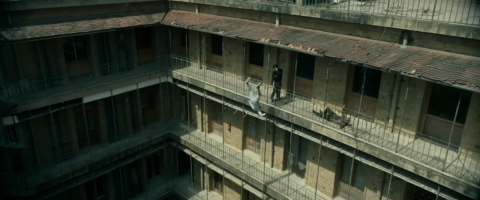It has been an impressive eleven years since Anurag Kashyap made waves at Cannes with his five-hour crime thriller drama Gangs of Wasseypur (2012). The film not only earned him auteur status but also renewed global interest in Indian cinema, encouraging directors to stay true to their original values and experiences. After a series of prolific potboilers in the thriller genre, Kashyap is back with Kennedy (2023), a low-profile crime thriller that has garnered critical acclaim after its screening at the JIO MAMI Film Festival.
Set in the bustling city of Mumbai, Kennedy unravels the tale of Uday (Rahul Bhat), a former cop turned hitman working for the corrupt police commissioner Rasheed (Mohit Takalkar). Rasheed manipulates Uday, now operating under the eponymous nefarious alias. Initially, Kennedy works to keep his identity concealed, but over time, he develops a disturbing pleasure in killing innocents. This descent into darkness forms the core of the narrative, with a cat-and-mouse chase between Kennedy and the police reaching a critical juncture when they collide with Charlie (Sunny Leone), altering the course of the story. The film is a rollercoaster of deadly cinematic flips and ruthless bloodshed, maintaining an unrelenting pace that rarely allows the audience to lose focus.
Kashyap’s direction seamlessly aligns with the film’s mood, utilising a black-to-pale green palette to intensify the sense of vengeance and brutality in the night sequences. Collaborating with renowned cinematographer Sylvester Fonseca, a regular collaborator of Kashyap, the film employs tracking shots reminiscent of Scorsese’s early works and pan zoom-in shots reminiscent of famous thriller sequences in films such as Shutter Island (Martin Scorsese, 2010) or Vertigo (Alfred Hitchcock, 1958).
What sets Kennedy apart is its rich tapestry of references to Kashyap’s previous works. The high-voltage colour palette is a visual callback to films like Rama Raghav 2.0 (2016) and DevD (2009), establishing a thematic continuity across his filmography. Kashyap’s signature experimental approach to casting is evident as well, as he brings in new actors based on their stage experiences. Rahul Bhat and Sunny Leone in particular showcase the director’s knack for discovering and unleashing untapped talent. In particular, Sunny Leone, previously relegated to playing the eye candy, is allowed to exhibit her acting prowess, a bold move that unequivocally pays off.
Kennedy is best enjoyed when viewed piece by piece, with each set piece adding an extra layer of depth to the narrative. Kashyap’s genre expertise shines through in the film’s energised action sequences, providing a thrilling experience for cinephiles. The fast-paced nature of this crime thriller makes it an ideal choice for a weekend movie marathon, seamlessly blending suspense, drama and relentless action.
In conclusion, Kennedy is a testament to Anurag Kashyap’s continued evolution as a filmmaker. It not only pays homage to his earlier works but also pushes boundaries in terms of casting and storytelling. The film’s success lies in its ability to engage and keep the audience excited. As Kashyap once again makes his mark on the cinematic landscape, Kennedy stands as a compelling addition to his illustrious body of work.
Ketan Koparkar
Ketan Koparkar is a film critic and researcher.


